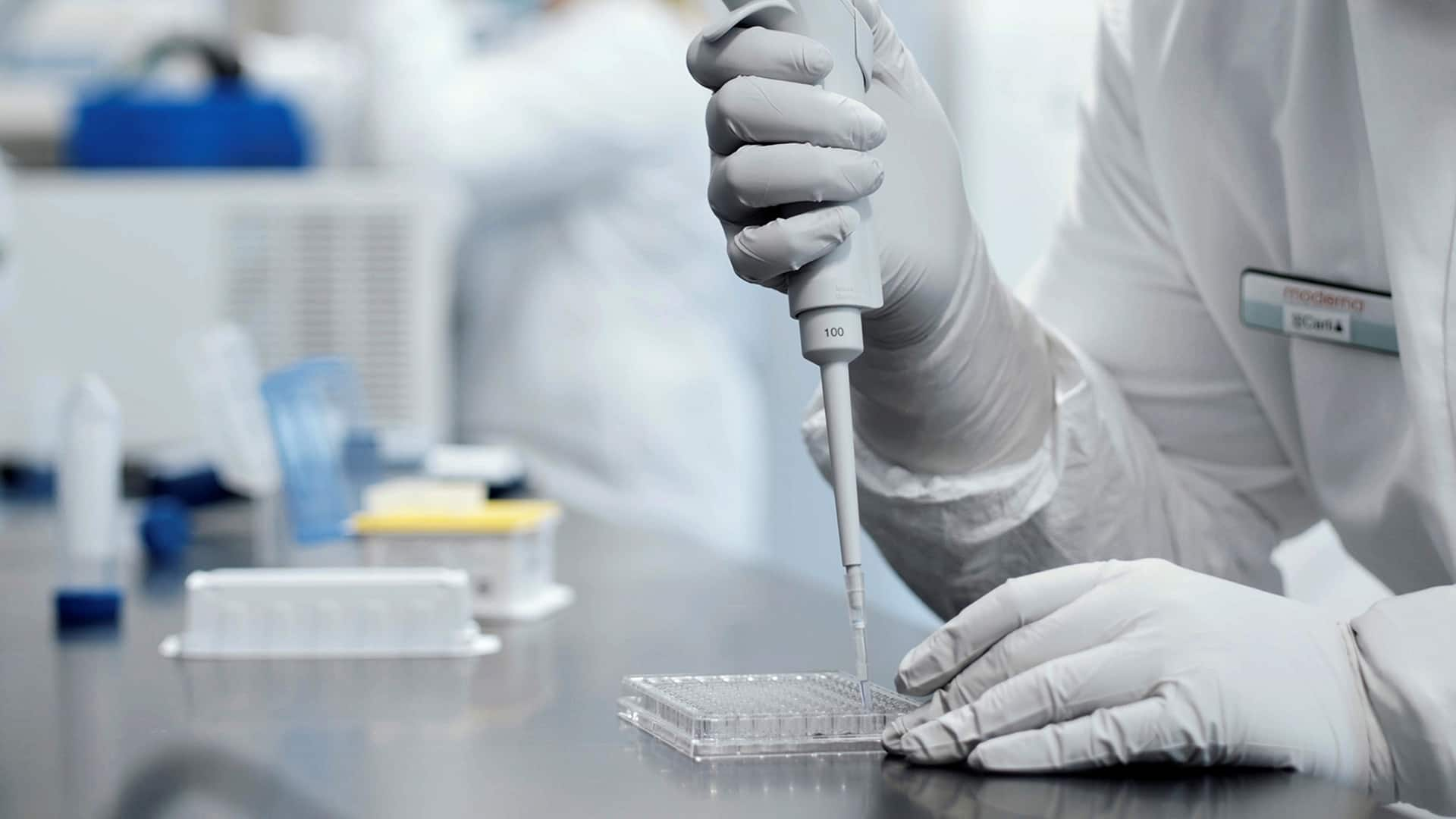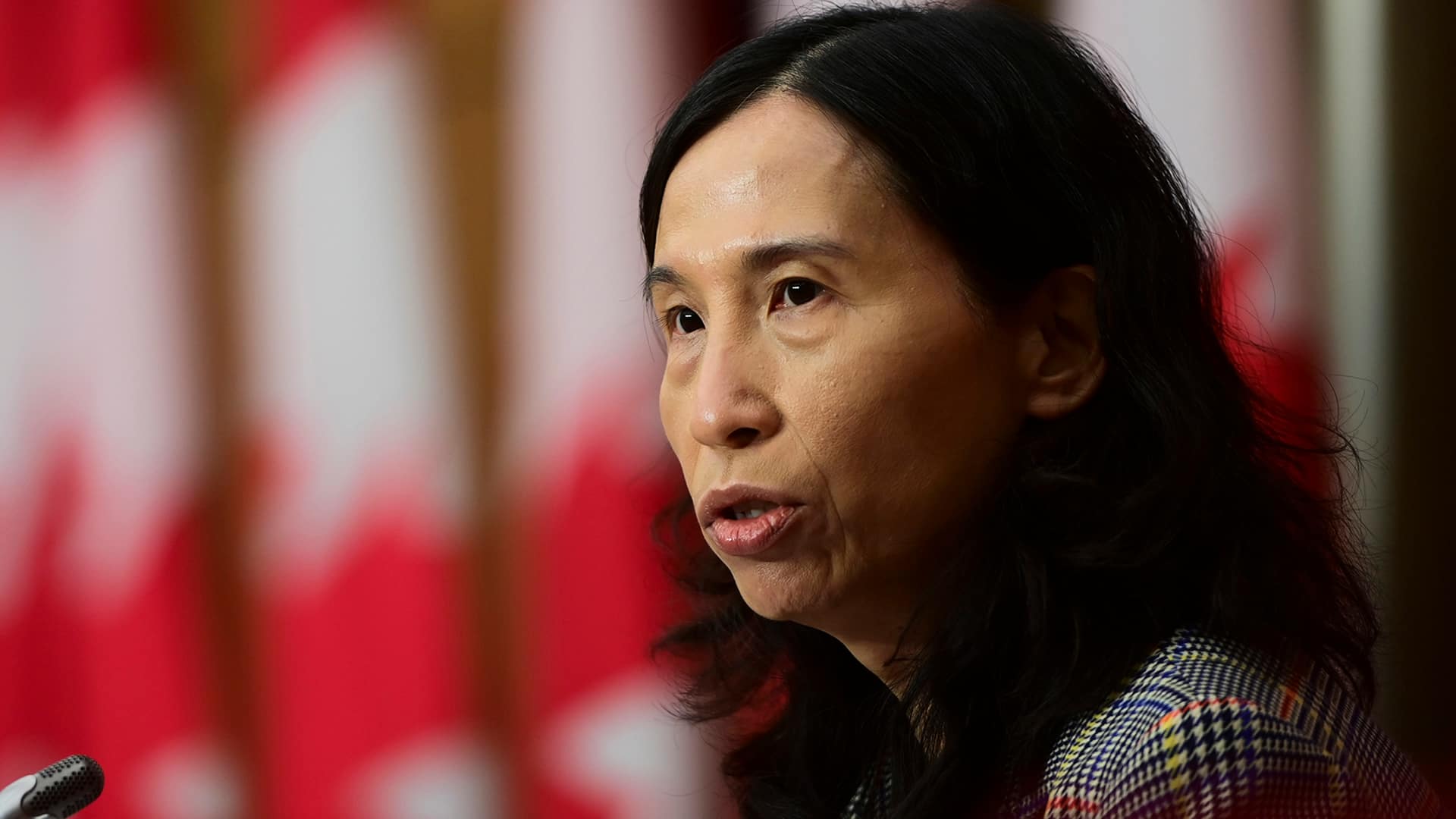Why Trump’s Operation Warp Speed is credited with helping race for COVID-19 vaccine
[ad_1]
Operation Warp Speed, a Trump administration initiative to manufacture COVID-19 vaccines as fast as possible, should be lauded as a successful endeavour in what has otherwise been a poor effort to deal with the coronavirus, experts say.
“No doubt, Operation Warp Speed is a huge success,” said Tinglong Dai, associate professor of Operations Management and Business Analytics at Johns Hopkins University Carey Business School in Baltimore.
“You can like or hate the Trump administration, but no doubt, it’s a huge success — unprecedented success.”
Jesse Goodman, the former chief scientist of the U.S. Food and Drug Administration, agreed that the U.S. government deserves credit for the high priority placed on Operation Warp Speed.
“This is a bright spot in the pandemic response. I mean, the rest of it has been dismal,” said Goodman, who is also director of Georgetown University’s Center on Medical Product Access, Safety and Stewardship.
Anthony Fauci, director of the U.S. National Institute of Allergy and Infectious Diseases, also lauded Operation Warp Speed for being a “success — certainly in the arena of vaccines, it’s been a success” in his remarks at a recent virtual summit organized by the medical news site Stat.
WATCH | Pfizer to ask for emergency use authorization in U.S. for its vaccine:
Pfizer is preparing to formally ask for emergency use authorization for its vaccine in the U.S., after new data showed it’s safe and 95 per cent effective. The vaccine’s approval in Canada could come within the next couple of months. 4:04
Launched in May, Operation Warp Speed (OWS) is a government initiated private/public $10 billion US program to help provide support to companies in the development, manufacturing and distribution of 300 million doses of COVID-19 vaccine, with the aim of having initial doses ready by January 2021.
Pfizer, Moderna announce potential vaccines
On Wednesday, pharmaceutical company Pfizer Inc. announced that new test results show its coronavirus vaccine is 95 per cent effective, is safe and also protects older people most at risk of dying.
Earlier this week, biotech firm Moderna Inc. also announced similar effectiveness of its own vaccine candidate.
The experts agree that Operation Warp Speed played a significant role in Moderna’s development of a potential vaccine.
“Without OWS, there would be no Moderna vaccine. Period,” Dai said.
WATCH | How will new vaccines work in the real world?
Infectious disease specialists answer questions about COVID-19 vaccines including if results from clinical trials will hold up in the real world. 6:49
Allison Winnike, president of the Texas-based Immunization Partnership, an organization providing advocacy and information about immunization initiatives, said that Moderna benefited tremendously from Operation Warp Speed, in part, by receiving close to $1 billion to support its vaccine development and clinical trials.
“That really got them to where they are today,” she said.
As well, the U.S. government signed an agreement with Moderna as part of the Warp Speed initiative committing to the purchase of 100 million doses once a vaccine was approved.
The clinical trial network to test Moderna’s vaccine was also funded by money that came from Warp Speed, Goodman said.

As for the role the funding played in the development of Pfizer’s vaccine, that’s a bit fuzzier. Last week, when the company announced it had developed a vaccine that was more than 90 per cent effective, U.S. President Donald Trump said that Pfizer was suggesting “it wasn’t part of Warp Speed, but that turned out to be an unfortunate misrepresentation.”
Pfizer self-funded
Indeed, Pfizer’s COVID-19 vaccine development and manufacturing costs have been entirely funded by the company. However, it did strike a deal with Operation Warp Speed for the U.S. government to buy about $2 billion of its vaccine, or 100 million doses, once it gets approved.
“Pfizer is a very large company with substantial cash reserves,” Goodman said. “I’m sure that [OWS] was helpful. I’m not sure about [whether] it wouldn’t have happened without it.”
But Walter Orenstein, a former director of the U.S. Immunization Program and former deputy director for immunization programs at the Bill & Melinda Gates Foundation, said Operation Warp Speed has played a major role by guaranteeing a market to Pfizer so it can begin developing its procedures for distribution.
And that has taken some of the financial risk out of the process for companies such as Pfizer, he said.
He agreed that the policy initiative is an exception to how the Trump administration has handled the pandemic and that his “personal opinion is [OWS] has helped substantially.”
“I’ve never seen an effort like this before,” he said. “Never in my lifetime or my career certainly [have I] seen anything proceed this quickly.
“I can’t see this large an effort by this many companies going forward in this fashion without substantial support that has come [through] Operation Warp Speed.”

Initiative done in anything but warp speed
However, Dai said that even without Operation Warp Speed, companies such as Pfizer would already have an incentive to be the first to market.
But he believes the initiative deserves credit for spurring on competition by its “seemingly impossible due date.”
“OWS effectively changed the entire narrative of vaccine development timeline and prompted vaccine manufacturers to pool all their resources to meet the impossible due date,” Dai said.
While Goodman said Operation Warp Speed is certainly a success, he criticized the Trump administration for being in denial about the pandemic and downplaying its seriousness. Indeed, getting OWS off the ground was done in anything but warp speed, he said.
It took months, he said, before the U.S. government got investing in vaccines in earnest.
“Can you imagine where we could have been had these billions of additional dollars and investment had started kicking in January?” he said.
“I think we could be significantly further along if there hadn’t been that really kind of desire to just wish the pandemic away.”
WATCH | Ottawa gearing up for vaccine rollout:
The federal government is finalizing its plan to roll out COVID-19 vaccines once they are available in Canada. The plan needs to include how to transport, store and deliver millions of doses quickly and may involve military assistance. 1:54
Early missteps
Winnike said, by its own metric, Operation Warp Speed won’t have succeeded in meeting its goal of delivering 300 million doses of the vaccine by the beginning of the new year. At most, she said, it would be able to deliver 20 million doses.
Winnike also criticized the program for being secretive and not transparent.
“I think one of their major missteps early on is that they were secretive about who was involved in the process for choosing the vaccine candidate, and they were secretive about how they were making those decisions,” she said.
She said that secrecy “planted a flag on the growing distrust in the vaccine development process in the United States.”
[ad_2]
SOURCE NEWS



